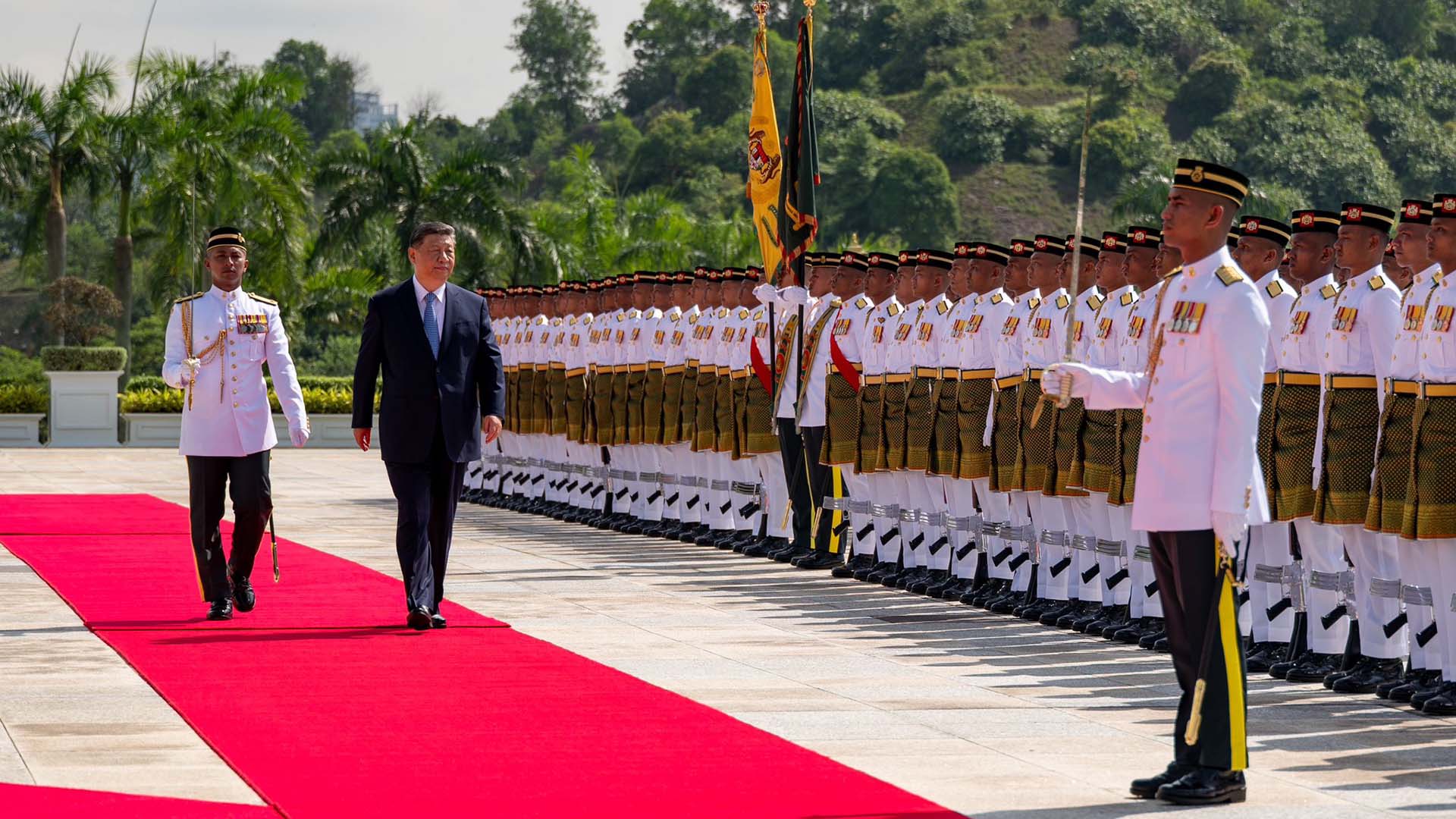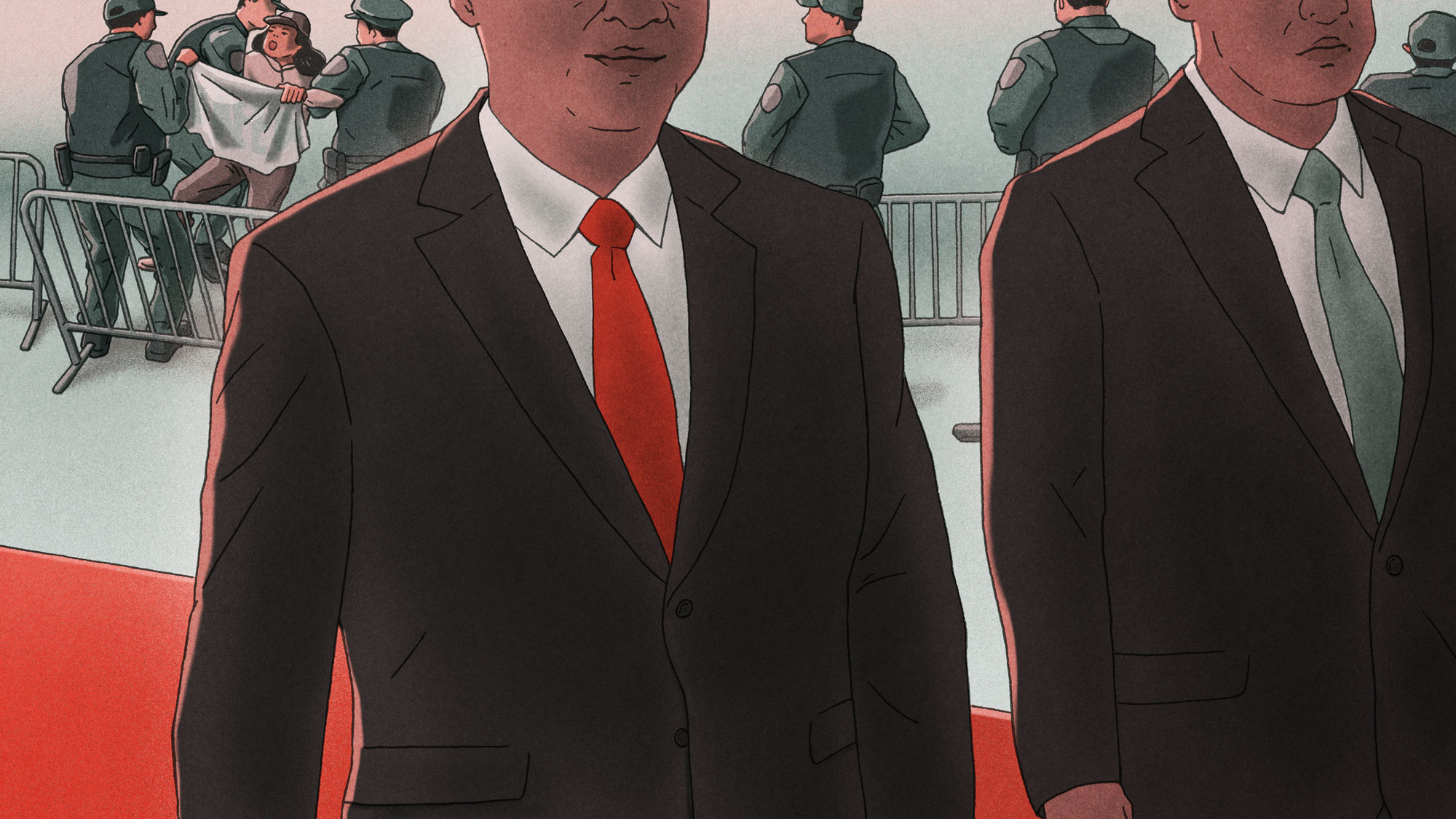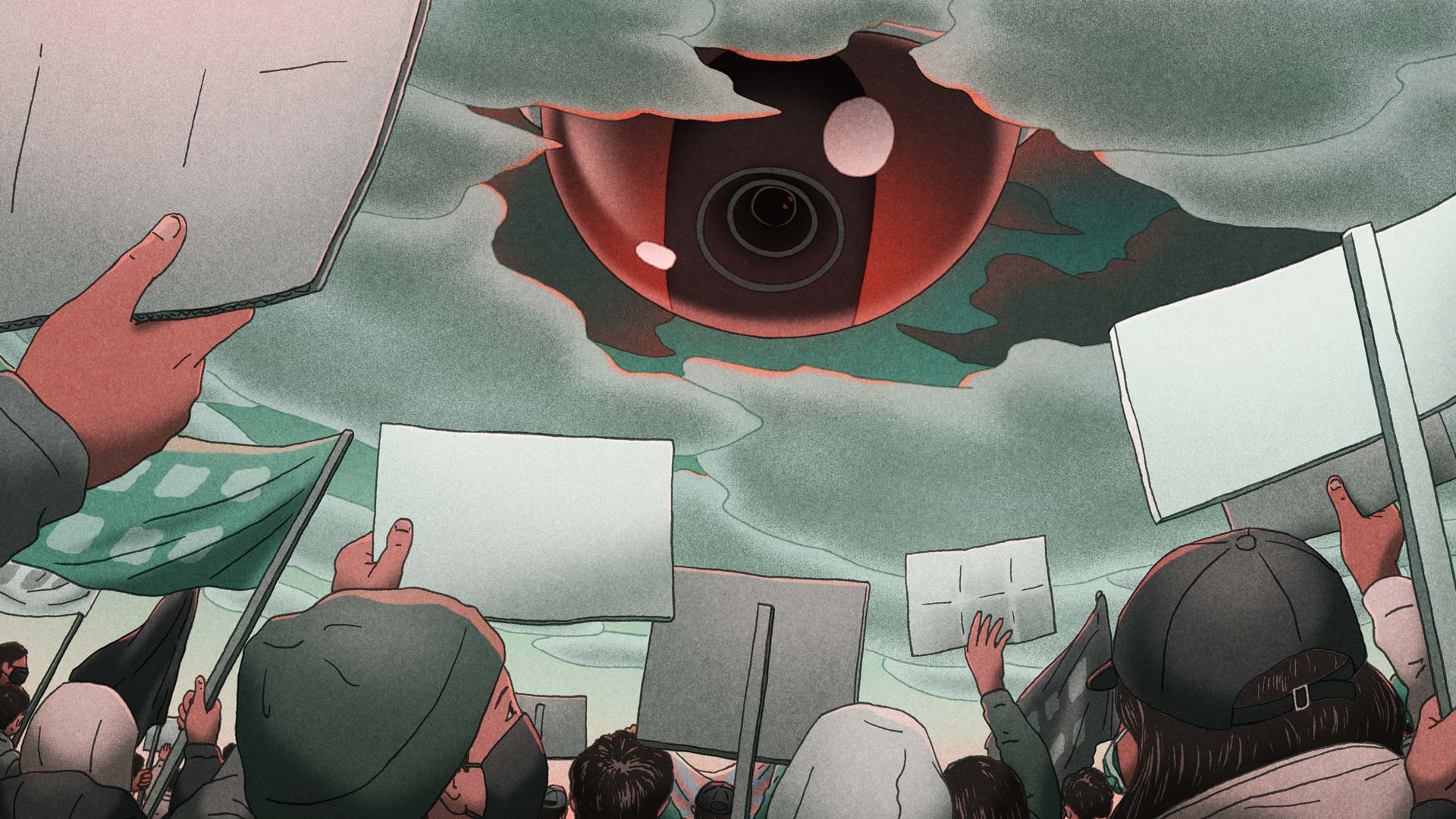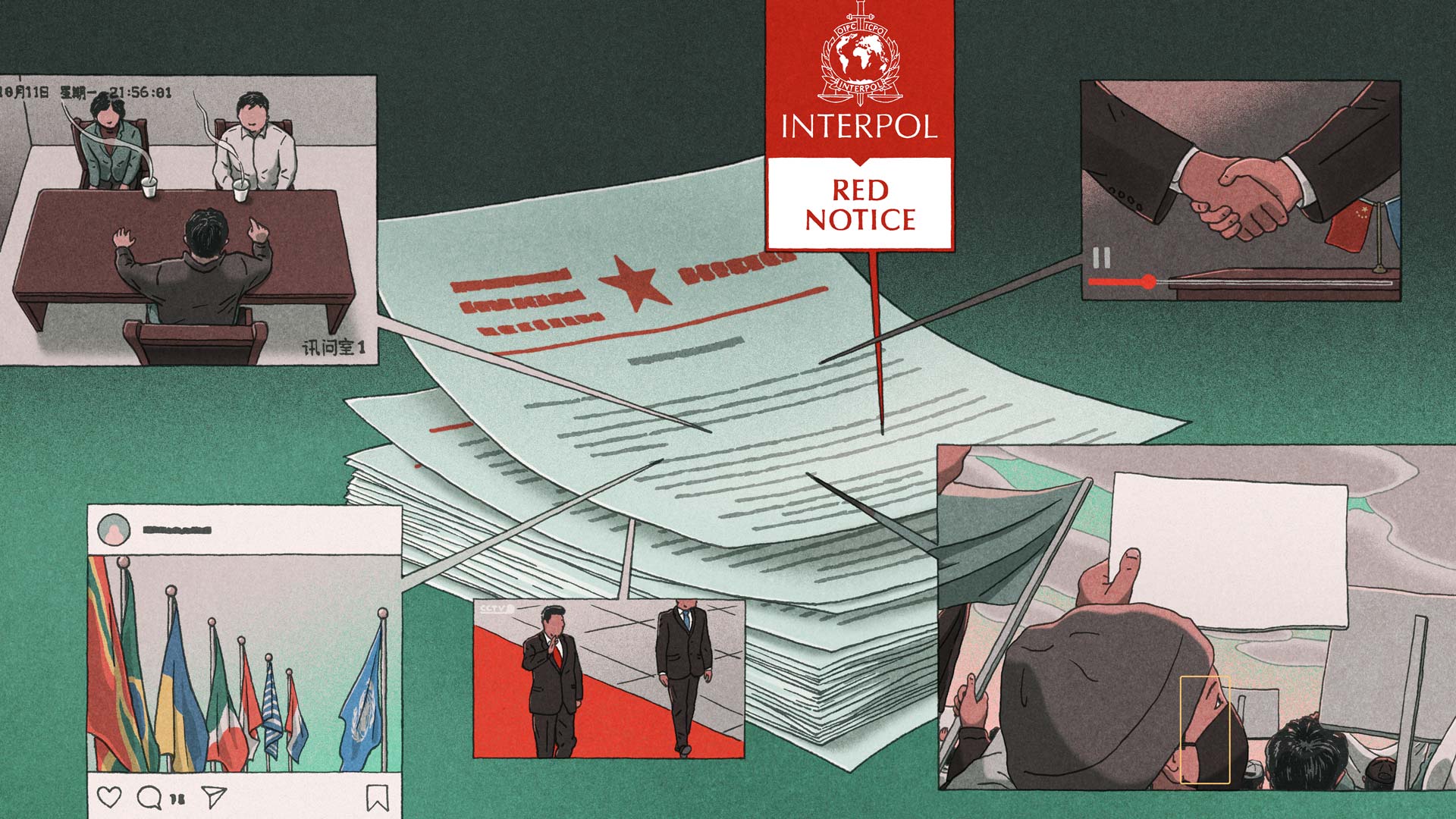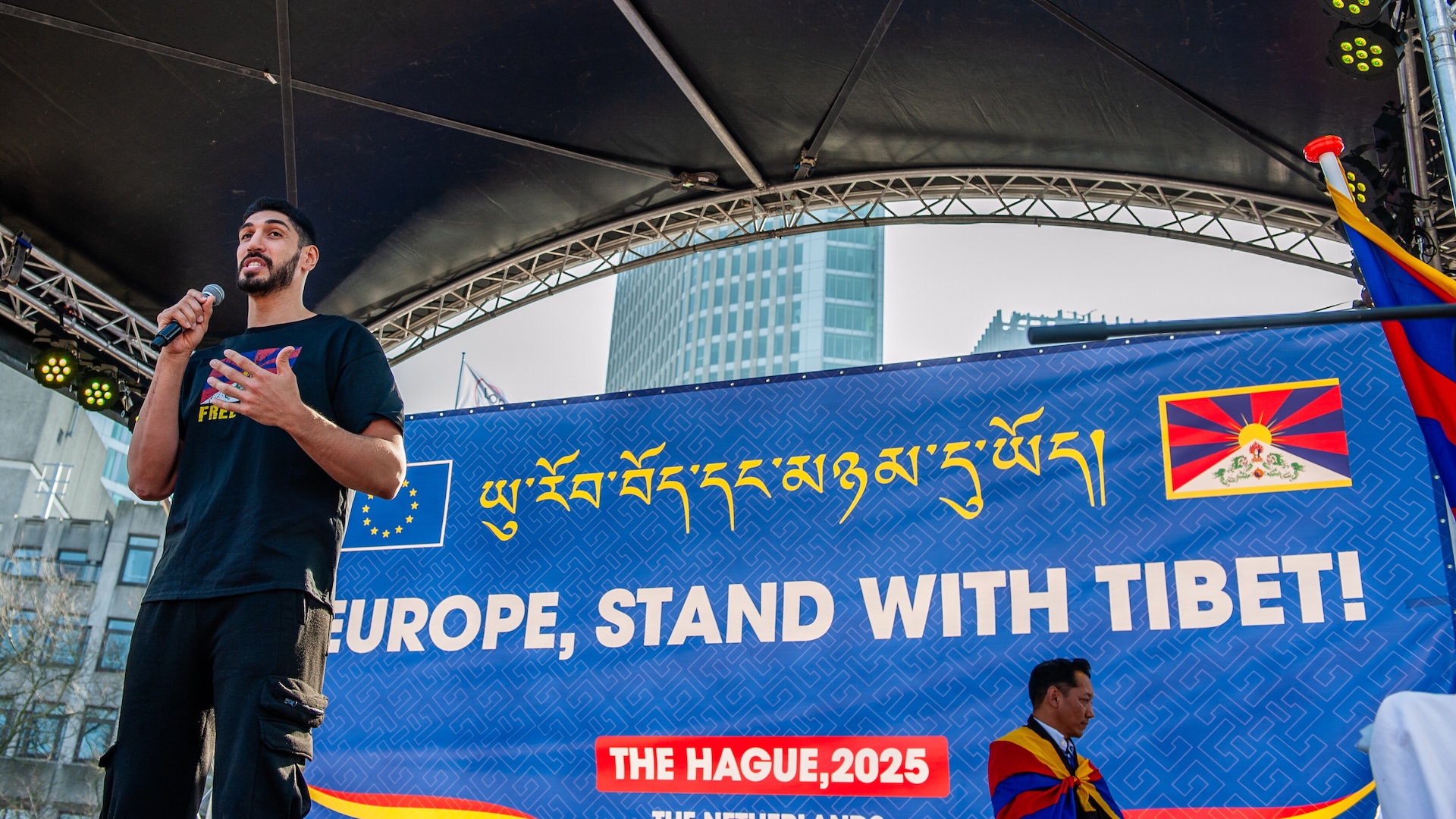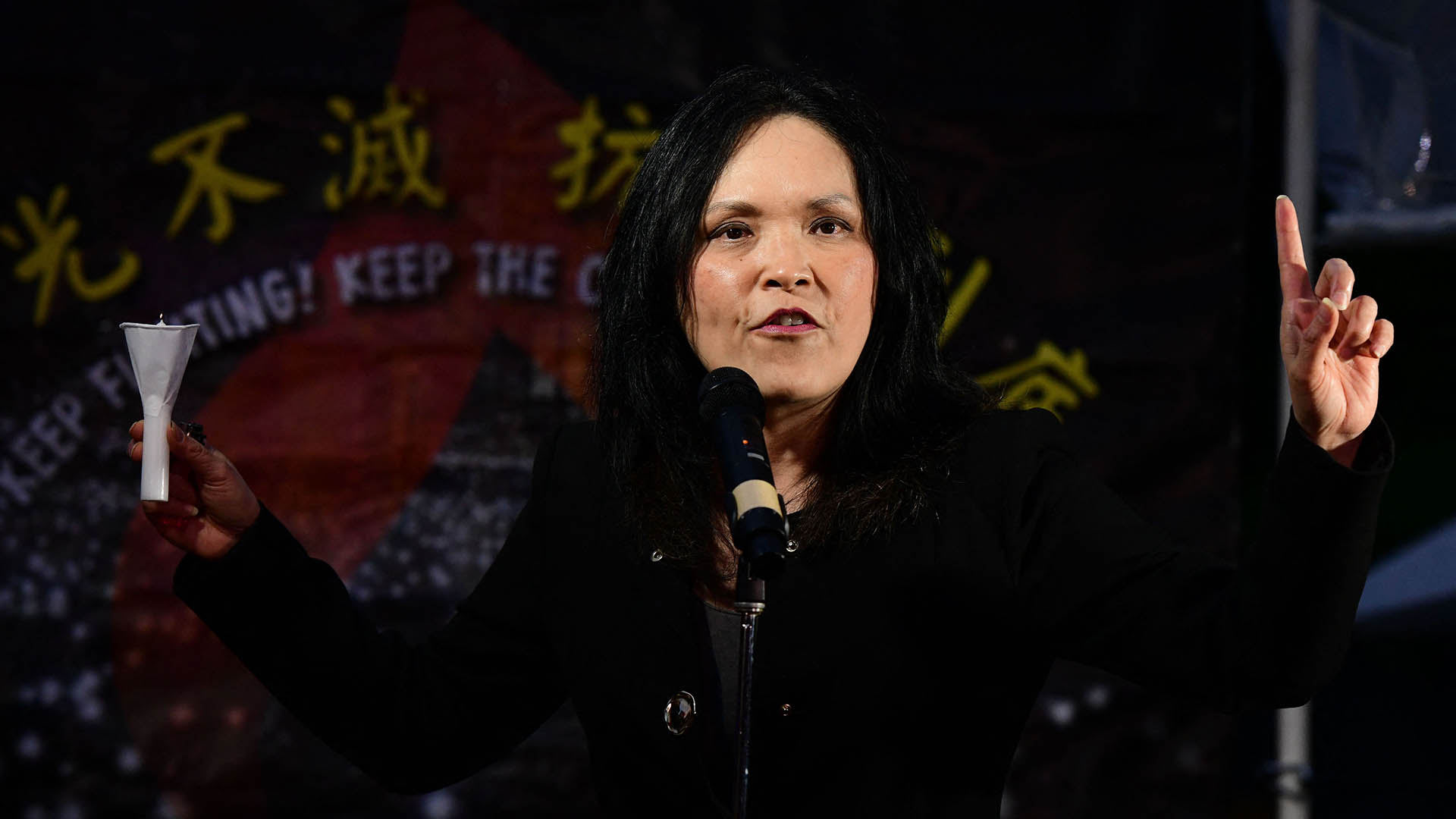Two days before Chinese President Xi Jinping’s state visit to Malaysia in April, police officers arrested more than 70 Falun Gong practitioners and allegedly held them until after Xi left the country, echoing a pattern of detention identified by ICIJ in its recent China Targets investigation.
Kuala Lumpur Police Chief Datuk Rusdi Mohd Isa told ICIJ partner Malaysiakini, which first reported the detentions, the group had been arrested under suspicion of being involved in an “illegal organization.” He refuted allegations that officers had received instructions to preemptively detain the practitioners ahead of Xi’s visit to the country and said he directed Kuala Lumpur’s criminal investigations chief to “take strong action against the group.”
As part of China Targets, which exposed Beijing’s tactics for silencing its critics worldwide, ICIJ found that during Xi’s overseas trips between 2019 and 2024 local law enforcement detained or arrested dozens of activists, often for spurious reasons. Those targeted by local police included Uyghurs and other ethnic minorities, as well as members of the Falun Gong movement.
On April 13, two days before Xi’s state visit to Malaysia, a group of 76 Falun Gong followers had met for a regular Sunday study session at a Kuala Lumpur office previously used by the disbanded Malaysian Falun Gong Association, according to Max Chua, one of the detainees.
China outlawed Falun Gong, or Falun Dafa, in 1999, labeling the spiritual movement “an evil cult.” The Malaysian sect has held public protests and demonstrations within the last six months.
As the Falun Gong followers gathered in the office, a group of local police officers entered the space and demanded identification cards, Chua said. After collecting the practitioners’ cards, the police went into a storage closet and pulled out various Falun Gong banners and placed them in the center of the room, according to Jane Teo, Chua’s wife, who was also detained.
Teo said that police denied that she was under arrest, but refused to return her identification documents or allow her to leave.
“This is almost a police standard operating procedure in Malaysia,” Andrew Khoo, a Kuala Lumpur-based human rights lawyer, told ICIJ.
After several hours, police told Teo, Chua and the other practitioners that they would be taken to a nearby district police headquarters for further questioning on suspicion of participating in or donating money to and printing, displaying or publishing information on behalf of an “unlawful society.” If convicted, the two charges can carry a prison sentence of up to five years and a fine of over $2,300.
Twenty-nine of the practitioners detained in Malaysia are Chinese nationals, some of whom were in the country without legal authorization. It is unclear at what point during the detention members of the group were formally arrested and charged with a crime.
“We were there wasting our lives,” Teo said. “They waste our lives. They also waste their lives.”
Chua recalled authorities asking him directly in a second round of questioning whether he intended to protest while Xi was visiting the country.
“The first question the lady asked me is ‘What is your plan towards Xi Jinping?’ ” Chua said.
Chua ended up being held in a lockup for four days, and he said authorities confiscated his and Teo’s phones. The husband and wife, along with the other Malaysian practitioners, were released after Xi had left the country, he said. Several of the Chinese practitioners allegedly remained in detention for up to two weeks longer.
ICIJ partner Malaysiakini reported that Kuala Lumpur Police Chief Isa denied that his department had received directives to apprehend the Falun Gong followers prior to Xi’s arrival. He said that the group is an “illegal organization” and that the arrests were carried out in accordance with Malaysian law.
“They always organize protests at many locations, including near embassies,” he told Malaysiakini. “As they are illegal now, they are not allowed to do any activity either openly or even behind closed doors.”
The Cheras District Police Headquarters, the Kuala Lumpur Police and the Royal Malaysian Police did not respond to ICIJ’s requests for comment. The Chinese Embassy in Malaysia did not respond to a request for comment.
